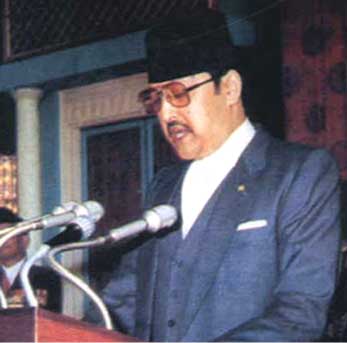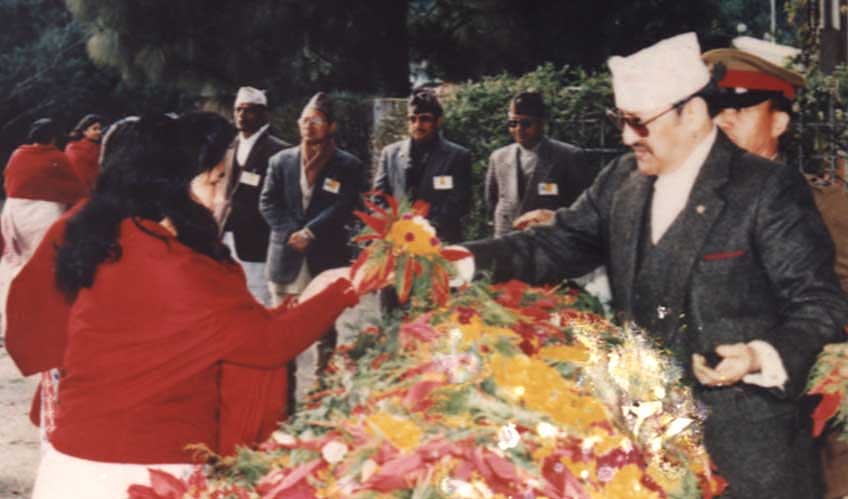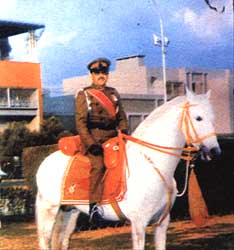|
|
Birth: 14th Poush,2002
(28 December, 1945 A.D.) |
|---|
King Birendra will go down in history
as a monarch who led Nepal through changing political times.
He ascended to the throne in 1972, just two years after marriage, as a result
of the sudden death of his father, King
Mahendra.
He inherited a political system in which the king held considerable autocratic powers and political parties were banned. He ruled Nepal for 30 years,
The king was a popular figure all over the country. Many regard his most popular move being announcing a referendum to decide between a non-party and a multi-party system. In the referendum in May 1980, the non-party system won. But the margin of victory was narrow - 55% to 45% - and the situation remained tense.
 |
In November 1990, King Birendra agreed to reduce the powers of the monarchy dramatically.
He remained the country's head of state, but handed over executive power to a council of ministers headed by the prime minister. A ruler much loved by his people, he agreed to popular will and surrendered absolute power
Education
Birendra received his early schooling at Darjeeling in India, and then went to
Eton College from 1959 to 1964. His contemporaries there remember him as a "very, very nice bloke who was embarrassed when his full title was read out at the school assembly," and for his talent in oil painting. From Eton he went briefly to Tokyo University and later to Harvard, where he studied political theory for a year. He was Nepal's first king to receive a formal education.He was a teriffic spoker.
A king for all
A soft-spoken man with glasses and a moustache, King Birendra was 10th in his line
 |
to rule Nepal and considered by Nepalese people to be an incarnation of the Hindu god Vishnu.
He was more at ease and best liked for listening closely to the problems of common
Dressed in the traditional short coat worn over loose trousers and a black Nepali cap, the soft-spoken king was a familiar figure to the people of his country.
 |
He loved to fly, and whenever he could get away from his palace duties would pilot a helicopter to remote villages.
There he listened to people's problems and directed officials to find solutions.
In recent years, King Birendra had focused on development projects, trying to improve Nepal's difficult economic situation.
